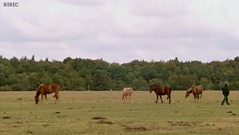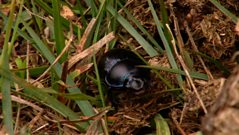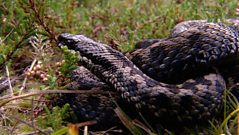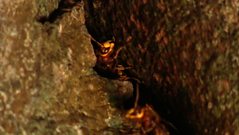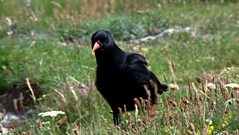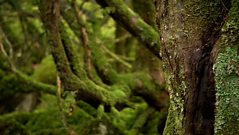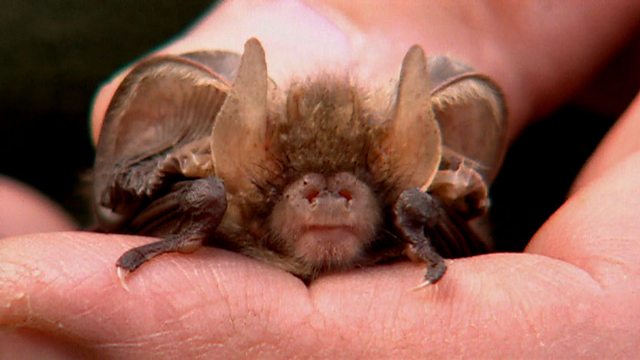
Bat facts
The middle of the day is a good time to find a forest animal that hasn't packed up for the winter yet. Bill Oddie heads off with forest keeper Martin Noble to look for bats in bat boxes. The first one they find is a pipistrelle. It is about the size of a pygmy shrew, but weighs less. They are the smallest of the bats but have quite a large wingspan - more than six inches. The different shaped ears of bats are for hearing their contact and echolocation calls. People can hear their contact calls, but the echolocation ones are at a much higher frequency and act like 'radar' so the bat can navigate in the dark. The second type of bat is a long-eared bat. It can even inflate its ears with blood to give it much better hearing. They can thus make much quieter echolocation calls and still detect them. Since some moths can hear bats calling and will take evasive action, a quiet call is an advantage. The bats will be returned to their bat boxes.
Duration:
This clip is from
Featured in...
![]()
大象传媒 Nature
Be captivated, informed and inspired by the world's wildlife.
More clips from New Forest
-
![]()
Feral foresters
Duration: 02:37
-
![]()
UK dung beetles
Duration: 01:48
-
![]()
Good vibrations
Duration: 03:34
-
![]()
Stingless male
Duration: 01:27
More clips from Bill Oddie Goes Wild
-
![]()
Mossy woodland—Series 3, South West Ireland
Duration: 01:59
-
![]()
Chough country—Series 3, South West Ireland
Duration: 03:52
-
![]()
Deserted village—Series 3, South West Ireland
Duration: 01:36
-
![]()
Yew forest—Series 3, South West Ireland
Duration: 01:48


